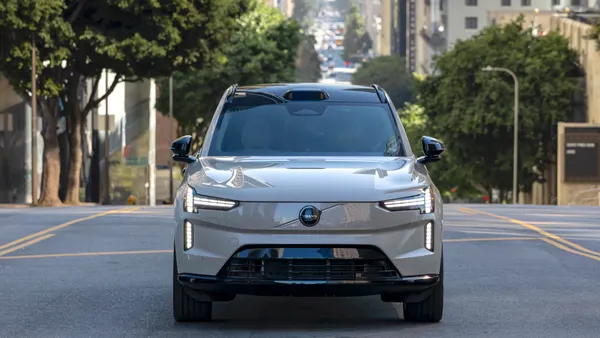Editor's note: This story is part of the WardsAuto digital archive, which may include content that was first published in print, or in different web layouts.
Bankruptcies and plant closings grab the headlines, and some supplier surveys suggest this is an awful time to be in the auto parts business.
One automotive consulting firm begs to differ.
A.T. Kearney, of Southfield, MI, releases its ninth annual Townsend study of the global auto industry, which evaluates the outlook for steel, oil and health-care costs, as well as the financial performance of 124 auto makers, suppliers and dealers in the light- and commercial-vehicle sectors.
Surprisingly, A.T. Kearney finds North American and European Tier 1 suppliers exceed the financial performance of Asian suppliers, based on Kearney's metric known as CFRIC (cash flow return on invested capital), which is a measure of the capital necessary to generate cash.
Over the past three years, CFRIC has been growing for North American suppliers. In addition, based on CFRIC, those suppliers have outperformed their North American auto maker customers by a wide margin in each of the past nine years, says William Windle, A.T. Kearney vice president, who helped lead the study.
“At the end of the day, the suppliers do pretty well,” Windle says.
The consulting firm studied publicly available financial reports for 69 suppliers, 18 light-vehicle OEMS, 15 commercial-vehicle makers, 11 publicly traded dealer groups and 11 aftermarket retailers.
Of the 69 suppliers, 28 were North American, 24 were European and 17 were Asian.
Among the 69 were the beleaguered (Visteon Corp. and Delphi Corp.), the bankrupt (Tower Automotive Inc. and Federal-Mogul Corp.), the foreign prosperous (Robert Bosch GmbH and Denso Corp.) and the solid performers (BorgWarner Inc. and Johnson Controls Inc.).
The 69 suppliers represent 70% of the OEM global buy for components.
A.T. Kearney Vice President Nick Galambos, who also helped with the study, says positive financial news about U.S. suppliers has been lost in the haze of low-cost sourcing, relentless pressure to reduce component prices and the bitter friction that marks the dynamic between parts makers and OEMs.
Based on CFRIC and year-over-year revenue growth, the study finds North American suppliers performing the best — even better than the strongest parts makers in Europe and Asia. Leading the way are Magna International Inc., Eaton Corp., JCI, Linamar Corp., Caterpillar Inc., Cummins Inc. and BorgWarner.
Among the 69 global suppliers in the survey, the average revenue growth in 2004 was 10.7% above the 2003 level, which reflected 5.2% growth over 2002. Average revenue growth was significantly lower for auto makers — 4.4% in 2004 and 2.1% in 2003.
The strong revenue growth suggests suppliers have done a good job rationalizing their facilities, disposing of weak assets and selling their customers unique new features for vehicles.
“For those who say automotive in general doesn't grow, it's a fallacy. It amazes me,” Galambos says. “We see consistent global growth, and vehicles are getting more content-rich.”
The commercial-vehicle (CV) market continues its rebound, and suppliers feeding the sector clearly are benefiting, he says. They include Eaton, ArvinMeritor Inc. and Dana Corp. The CV market is expected to remain strong for a few years as manufacturers step up production before stricter emissions regulations take effect in 2007.
After 2007, the CV market is expected to dip sharply but rebound and stabilize about a year later, Galambos says.
The strong financial performance for many suppliers explains why OEM purchasing departments frequently press for price reductions, which ultimately leads to friction in the relationship, Windle says.
“They both need and love each other, but they can't figure out how to live together,” he says.
The study also finds waning interest among suppliers in “systems integration,” or all-inclusive modules. Suppliers have struggled to achieve profitability with modules.









